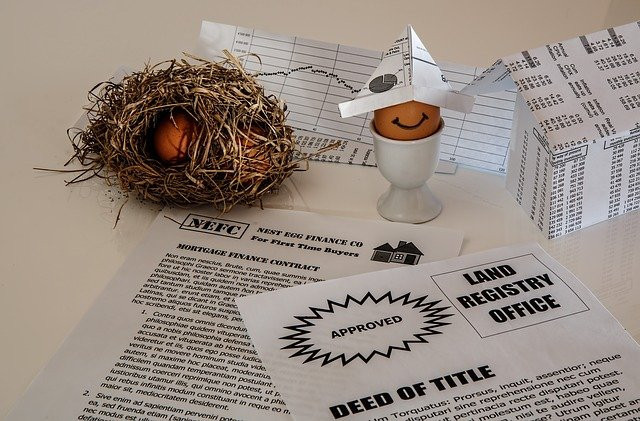There may come a time when you want to know what year your house was built. People often don’t know where to start; however, with some research and investigation, you can find out. The year your home was built is important because it can help you know when to perform maintenance and more.
You can find out what year your house was built by reviewing the title search, title insurance policy, or appraisal you received at closing. You can also contact your mortgage lender, closing attorney, county clerk, local building inspector, or local library. Looking at the material and hardware used to build your house may also give you clues. Finally, you can search for the age of your house online.
Having this information is useful when you are selling or remodeling your home. Let’s go over the documents and other methods you can use to find out the age of your home.
Search for Documents You Received When You Bought the House
If you want to know what year your house was built, start by looking for documents you received at closing. You should have received the following documents when you signed real estate related documents at closing.
Title Search
One of the documents required by lenders is the title search, which may uncover property disputes, unreleased liens, and wrong information. The title search should have a history of everyone who has owned your house. It should include the deed history starting from the beginning.
Title Insurance Policy
Another document typically required by lenders is title insurance, which protects homebuyers and lenders against title defects when there is a transfer of property ownership. The title insurance policy should also have the year your house was built.
Appraisal
Another document that you might have is the original or subsequent appraisals. This is the evaluation of the value of your home, which should include the year your house was built.
Where to Go if You Can’t Find These Documents at Home
With all the paperwork we get when we buy a house, it is easy to misplace key documents. Thankfully you may get a copy from businesses that were part of the purchase.
Your Mortgage Lender
If you financed your home as most people do, your mortgage lender has to have a file for you. Depending on how long ago you purchased the house, they may still have copies of these documents and they may provide a copy of any of these documents for a reasonable fee. Even if they don’t have these documents anymore, they may be able to go to your bank records and find out when your house was built.
Closing Attorney
If you used an attorney for your closing, these papers might be at the law office. And if that is the case, they should be able to give you a copy.
County Clerk
Another possibility is to go to the county clerk’s office or its website in some states. The county clerk where your house is located has records of all of the deeds for your property and since it is a public record, it shouldn’t cost you anything to locate these documents.
Local Building Inspector
If you need more information you may want to contact your local building inspector. You can get a hold of your local building inspector to see any building permit applications, for additions, new roofs, etc that are on file for your address. New constructions require permits, so you may be able to learn about any changes or additions to your property.
Your Local Library
Another place to do some research is your local library. Often the community library will have a section that is all about local history and they have maps of the community, original building plans, and sometimes photographs. You can find old newspapers and look for real estate listings around the time your property was built.
Check the Materials Used to Build Your House
If you are not lucky with these methods, you can also inspect your house to find out clues of its age.
There are certain materials that were popular at certain times and they will give you a clue as to the age of your house. This won’t help you much if the home has been completely renovated, but any original parts will give you an idea. For example, people used asphalt tile flooring between 1920 and 1960. If your bathroom has the original fixtures, you can look under the toilet tank for a manufacturing date stamp.
The style of your home may also give you a clue. In the 1850s, people built Italianate-style homes, but in the 1890s, everyone built Colonials. In the 1900s, they changed to Craftsman-style houses. You can consult with a local architect as well, as they know how to identify the style of homes and how old they are.
Look at the Hardware
The hardware in your home can also be helpful to figure out your house’s age. You need some knowledge of metal working because American hardware was crude at a time when people could get European hardware that was more sophisticated. You can examine door handles, the door knocker, and hinges as well as screws and other hardware. If your house has Victorian-era hardware, you can research it at your local library.
Unfortunately, this mostly applies to older not-renovated homes. If you are looking to restore the house or replace any of the original parts, you will want to know what they were and where they were from.
Search for Your Property Online
There is a lot of information online today, including historical records. Start by running a search for your address. You can gather all kinds of history, including any stories about the house or events that took place there or records of various kinds. You can find out the sale prices and dates of the property, and you can find the tax assessments going back to the beginning.
Many people bought a tract of land before there was a building on the property. You can find out the original land value and the change in value once your house was built. Another thing you can find is the census records, which will tell you who lived in the house in the past. You can then do a search of those people to learn more about the history of your house.
Final Words
It is important to know when your house was built when you plan to sell, restore, or renovate it. You might want to know just so that you have this information. No matter what the reason is, there are a number of ways that you can find out the history of your house.
The best way to get accurate, detailed information is to go to the county clerk’s office and look at the property records. They should have a record of every owner since the property first existed. You should have some of these documents in your closing papers, as a title search or even appraisal will turn up the same information. You may need to call the attorney who handled the closing, or you could have the documents at home.
Related Posts:




